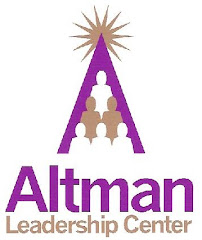“The function of education is to teach one to think intensively and to think critically. . . Intelligence plus character- that is the goal of true education.” – Martin Luther King Jr.
My kids recently took their mid-term exams for the semester and that event caused me to think again about education and ultimately its purpose. Herbert Spencer said, “Education has for its object the formation of character”, and Teddy Roosevelt famously remarked, “To educate a man in mind and not in morals is to educate a menace to society.”
A hundred years ago schools very unapologetically taught morality and character. For example when I was a boy in Texas every morning began with the Lord’s Prayer and then the Pledge of Allegiance and closed with the National Anthem. And if you acted up during any of these, your teacher would warm your little bottom for you right there; no need to even go to the Principal, your needs were served right there with a smile. This kind of instruction was seriously affected when society began the debate on whether religious instruction belonged in public schools, and if it did what that instruction should look like. A debate that is neither settled, nor likely to be settled, any time soon.
The greatest challenge to character education comes from the high values we place on separating church and state as well as individual freedom and autonomy. These philosophical challenges coupled with the make-up of the US becoming ever more diverse, to overcome both our interest and ability to address every religious, moral and ethical outlook in a scholarly way. As we usually do in public policy, we immediately threw the baby out with the bath water and with few exceptions stopped teaching morals, character and ethics.
Schools have had a reawakening to the ultimate purpose of education and teaching ethics, morals and character. They are using literature and physical education as the primary vehicles for this education; however, the ever increasing trend of using standardized tests to gauge school performance are limiting the time available for character development.
If you wish to be helpful in this discussion, the literature on the subject suggests the following:
- Read to, and then provide, books to your children that illustrate character, ethics, morals and values like Aesops’ Fables and The Book of Virtues by Bill Bennett.
- Encourage them to read biographies of individuals that exemplified values you wish to teach. If you email me I can provide a list.
- Collaborate with your child’s teacher about how to use these materials in projects and school assignments. As children get older they are able to think more deeply, with more insight and apply what they have learned to their own lives.
- Use movies, TV shows and other media to illustrate good and poor values; however, here use this time to ask them what they think. This can be a great time to influence their choices of entertainment and gauge where they are in developing their character.
- Last, be a good example! It is difficult to overemphasize the impact of a good example on your child’s development. “He preaches well that lives well.”- Miguel De Cervantes
Education is important as a life-long activity, not just because of what it teaches us about the world around us, but for what it can and should, teach us about ourselves. Be engaged in the debate of character education; demand from teachers, administrators, and law makers that character education become a cornerstone of education again. While there are certainly challenges in presenting the material with honesty and sensitivity to others, we stand to gain so much for our trouble.








No comments:
Post a Comment